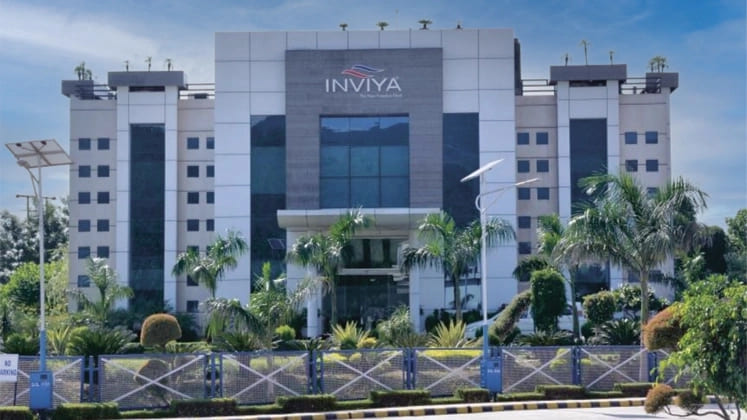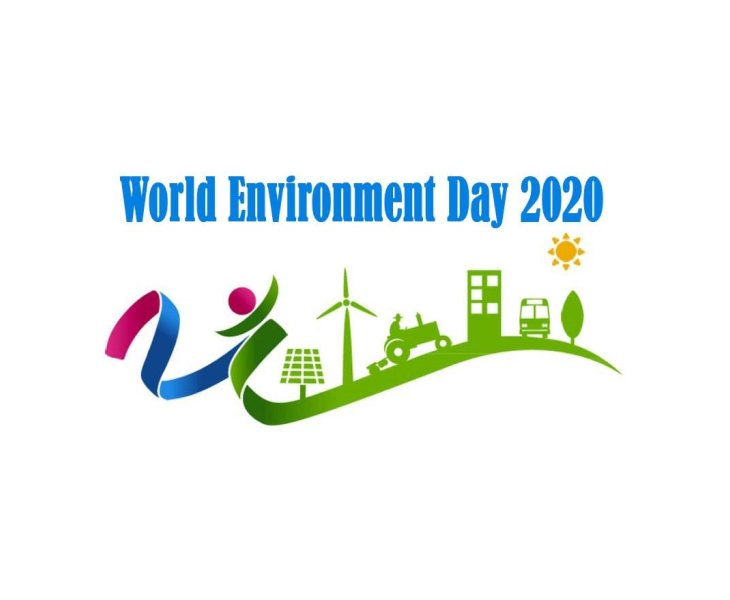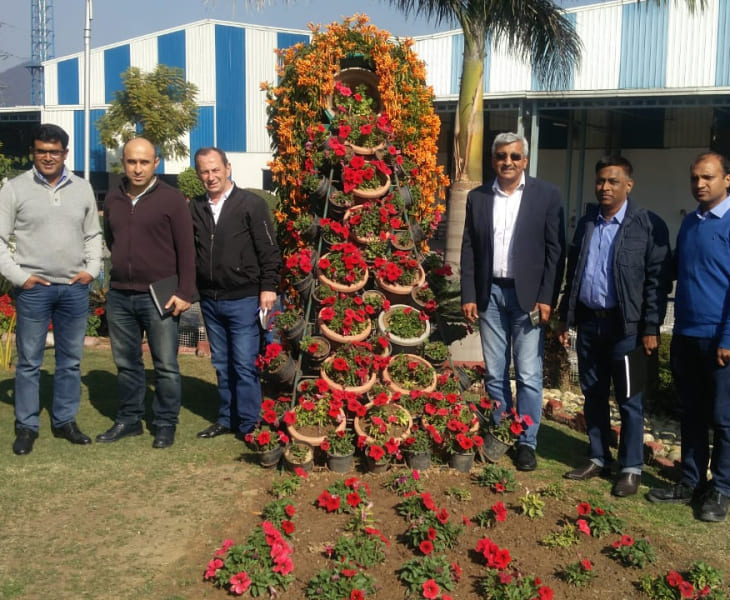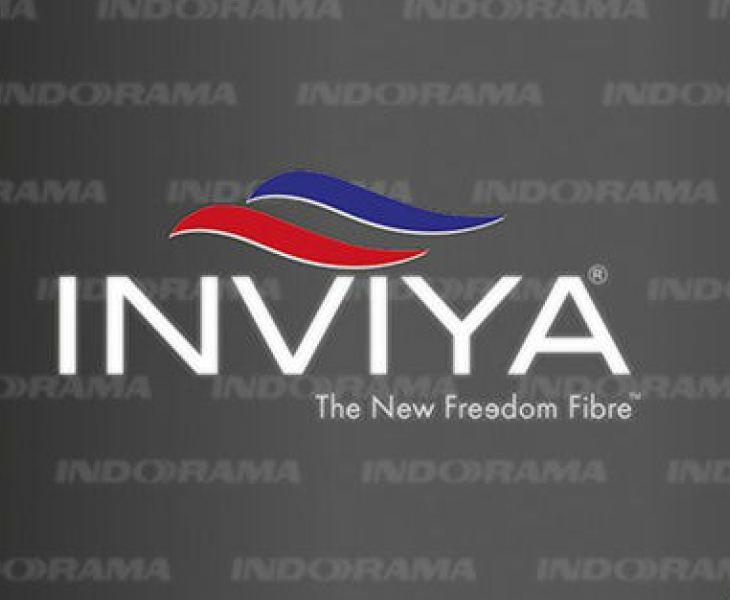13th March 2023
No looking back for INVIYA® in India as it goes full throttle with the commencement of the new plant in Baddi
1679136066.jpg)
Shalendra Vasudeva, CMO of INVIYA® Spandex Business (Indorama India Private Limited), shares his thoughts on the tech integrations at the new P3 plant, tapping the future for growth opportunities and the company's sustainability efforts with Apparel Resources, an international apparel and textile publication.
As INVIYA® recently commenced operations in its newly built plant (P3) in Baddi, Himachal Pradesh, Team Apparel Resources took the opportunity to have a freewheeling conversation with Shalendra Vasudeva, Chief Marketing Officer, INVIYA® Spandex Business (Indorama India Private Limited). The conversation revolved around many facets of the company’s growing business, new developments, sustainability initiatives and future growth plans.
Foraying into the Indian textile market at a time when no spandex manufacturing was available in the country and being the largest manufacturer of spandex in a span of 10 years takes a massive understanding of the market, business acumen and collaborative efforts. INVIYA® – the spandex brand of Indorama India – is regarded as a torchbearer of ‘Make In India’ spandex since 2012 when it commenced operations in the country. The development of the plant has been a result of greenfield investment – about US $ 70 million – done by Indorama Corporation in building strong technical capabilities in spandex manufacturing and, as the learning curve went up, there was no looking back for the company.
As INVIYA® recently commenced operations in its newly built plant (P3) in Baddi, Himachal Pradesh, Team Apparel Resources took the opportunity to have a freewheeling conversation with Shalendra Vasudeva, Chief Marketing Officer, INVIYA® Spandex Business (Indorama India Private Limited). The conversation revolved around many facets of the company’s growing business, new developments, sustainability initiatives and future growth plans. Here are the excerpts.
AR: Congrats on opening a new plant (P3) in Baddi. Pls take us through the new set-up, its production capacity and technology integrations.
Shalendra: With P3 being operational now, we have added another 25 metric tonnes per day capacity which has taken our total production capacity to 65 metric tonnes per day! This is a massive increase as it used to be just 13-14 metric tonnes per day when we started in 2012. P3 is highly automated. The new plant has a different machinery set-up and configuration. The quantity that we produce in a certain application area is much higher compared to what we did in our first plant due to the advancement in technology, polymer capabilities and winding machines. There’s negligible human interaction and interference by human hands, hence eliminating the possibility of any manual error.
We also have a pilot polymerisation plant, having small reactors in our research and development facility where we evaluate different polymer recipes to produce yarns for the upcoming needs of consumers.
AR: Pls share with us the applications of INVIYA® and the major buyers you are working with.
Shalendra: INVIYA®, as a reputed brand, holds a leadership position in providing functional solutions to high-end garments and accessories. This product goes with all textile and clothing applications, be it knitted fabric, woven fabric like denim, chinos, dress shirts and elastics, waistbands, or bra straps. It also goes with some very high-end hygienic applications such as baby diapers and adult diapers. SnugFit® is our brand for baby and adult diapers in hygiene segment.
We have a very wide range of products, which find application in clothing/textile and hygiene segments.
Indorama Corporation, the parent group of Indorama India, currently operates and produces products in over 40 countries. Apart from having operations in India and other textile-producing nations such as Indonesia, Thailand, Uzbekistan, Turkey, Indorama has customers all over the world and the name is synonymous with quality and responsiveness.
AR: What is the approach of INVIYA® towards sustainability and environmental responsibility in its business operations?
Shalendra: Sustainability is one area we are quite dedicated to.
More than 95 percent of the spandex which is produced worldwide is petrochemical-based or fossil-based raw material. At INVIYA®, we know it’s a challenging assignment to dispose of the spandex. Until now, it either went into landfills and stayed there for hundreds of years or it was taken up by the scrap dealers who further sold it to factories that used spandex in making soft toys! That’s not the right use of this material as soft toys should be made up of skin-friendly textile fibres, whereas spandex is more of a functional product that is used in small quantities in the garments to impart the required degree of stretch, elongation and recovery.
We are among the handful of companies that have started recycling the process waste in November 2022 and set up a logistic centre at main consumption markets such as Tirupur, Silvassa and Bhilwara from where we collect the process waste from all our spandex consumers. We have a logistics arrangement as well to bring that process waste to our Baddi plant where this process waste gets cleaned and homogenised by our unique technology for recycling this and this recycled spandex can replace virgin spandex. We call our recycled spandex ECOModaTM.
This approach and process enables us to reduce the carbon footprint and helps us to reduce the quantity of this spandex waste that goes into landfill.
Not just this, we are also developing a plant-based product. So, the spandex would be produced using biomass which will be biodegradable, unlike fossil-based raw material.
I’m also pleased to inform you that we have been approved as a preferred supplier for the use of recycled spandex by GAP and there are many other brands with whom the discussion is still going on! Once these discussions reach a logical conclusion, we will be able to share more details. We believe that we are way ahead of our main competitors in the recycling of waste and we are scaling that up.
AR: Can you tell us about your distribution network and collaborations to support INVIYA’s growth?
Shalendra: Collaboration is key in any business and INVIYA® is no exception as we believe in strong partnerships. We strongly believe in building and nurturing business partnerships in raw material space as well as distribution space for the front end of the business.
We have eased the availability of INVIYA® in India by having dedicated distributors in all consumption centres, where the material is stocked and can be delivered to customers within hours of placing orders with us.
AR: How has INVIYA® defied the odds in the last 10 years of business in India to reach where you are today? And, what is your strategy to tap future growth?
Shalendra: In the last 10 years of business, INVIYA® has faced certain hiccups due to our learning curve, variation in the demand due to structural reforms. As the textile and clothing industry is fragmented in MSME segment, there have been reforms due to GST implementation and demonetisation in the years 2017 and 2016 respectively. These reforms have actually helped the clothing/textile industry to grow on a sustainable basis and facilitated the widening of tax net.
The significance of these steps, taken by the Government of India, was realised later by the textile industry as these steps helped the traditional textile industry work in a more organised manner. Since INVIYA® majorly works in the domestic market, the textile industry’s transition from a fragmented working structure to an organised business has shown substantial results for the company. Today, we see the results – the domestic textile industry has become more linear, traceable, accountable and responsible for tax compliance.
Going forward, we want to stick to our mantra – listen to your customers, to tap growth. Since we are a B2B company, we believe our customers know the nerves of the consumer market and when they come up with feedback, we go back to the drawing board, in the laboratory, or in the R&D centre to come up with a solution that is closer to our customers’ requirements.
We also have an analytics team that tracks the ongoing and future investments coming in the Indian textile industry. We would make these tracking even stronger to reach out to a defined direction and decision for future growth.
Indorama is present in more than 40 countries with different verticals. It is one of the largest groups to have cotton spinning facility and polyester manufacturing, whereas its non-textile verticals include products like fertilisers and petrochemicals.





